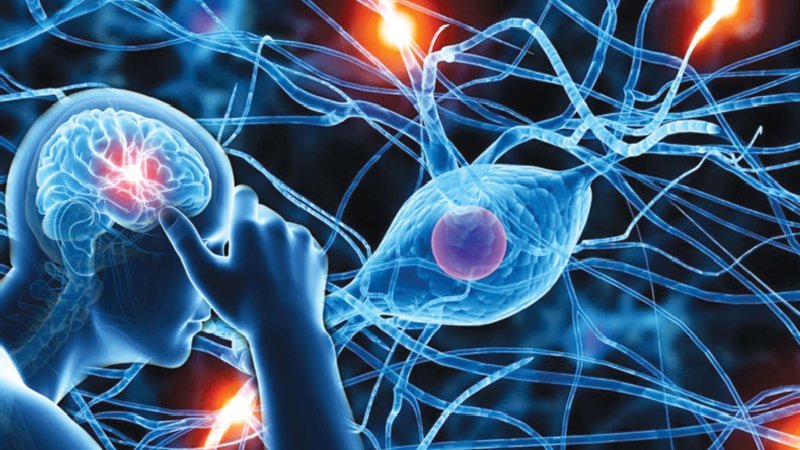
Overview of Neurological Disorders
Introduction to Neurological Disorders
Neurological disorders encompass a broad category of conditions that affect the brain, spinal cord, and nerves throughout the body. These disorders can result from various causes, including genetics, traumatic injuries, infections, or autoimmune disorders. They often manifest as disruptions in the normal functioning of the nervous system, leading to a wide range of symptoms that can significantly impact an individual’s quality of life. Understanding these disorders is crucial for early detection, diagnosis, and management to provide optimal care and support for affected individuals.
Common Symptoms and Causes
The symptoms of neurological disorders can vary widely depending on the specific condition and its severity. Common symptoms include headaches, seizures, muscle weakness, numbness, coordination problems, and cognitive impairment. These symptoms can be episodic or progressive, with some conditions leading to long-term disabilities if not properly managed. The causes of neurological disorders are multifaceted and may involve genetic predispositions, environmental factors, infections, or underlying health conditions. Timely medical intervention and treatment are essential to address these disorders effectively and improve patient outcomes.In conclusion, a comprehensive understanding of neurological disorders is essential for healthcare professionals, caregivers, and individuals affected by these conditions to facilitate early intervention and enhance quality of life.
Types of Neurological Disorders
Movement Disorders
Neurological disorders can be classified into various categories based on their effects on the body. Movement disorders are one such category that affects a person’s ability to control their movements efficiently. These disorders can lead to symptoms such as tremors, muscle stiffness, and impaired balance.
1. Parkinson’s Disease
Parkinson’s Disease is a progressive neurological disorder that primarily affects movement. It is characterized by symptoms such as tremors, bradykinesia (slowness of movement), rigidity, and postural instability. These symptoms result from the degeneration of dopamine-producing neurons in the brain. While the exact cause of Parkinson’s Disease is unknown, both genetic and environmental factors are believed to play a role in its development. Treatment for Parkinson’s Disease focuses on managing symptoms and improving quality of life through medication, physical therapy, and sometimes surgery.
Cognitive Disorders
Cognitive disorders impact various cognitive functions such as memory, reasoning, perception, and awareness. These disorders can significantly affect an individual’s ability to perform daily tasks and interact with others effectively.
1. Alzheimer’s Disease
Alzheimer’s Disease is the most common form of dementia and is characterized by memory loss, confusion, and difficulties with language and decision-making. The condition is caused by the accumulation of amyloid plaques and tau tangles in the brain, leading to the death of brain cells. While there is currently no cure for Alzheimer’s Disease, early diagnosis and management strategies can help slow its progression and improve the quality of life for affected individuals.In summary, understanding the different types of neurological disorders, such as movement disorders and cognitive disorders like Parkinson’s Disease and Alzheimer’s Disease, is crucial for accurate diagnosis, treatment, and support for individuals affected by these conditions.
Diagnosis and Treatment of Neurological Disorders
Diagnostic Procedures
Diagnosing neurological disorders requires a comprehensive approach that often involves a combination of medical history review, physical examinations, and specialized tests. Neurologists may conduct various diagnostic procedures to assess the patient’s neurological functions accurately. These may include imaging tests such as CT scans, MRI scans, or PET scans to visualize the brain’s structure and activity. Additionally, neurological examinations, cognitive assessments, and laboratory tests may be performed to evaluate specific symptoms and rule out other possible causes. A timely and accurate diagnosis is crucial to initiate appropriate treatment and management strategies effectively.
Treatment Options
The treatment of neurological disorders aims to alleviate symptoms, slow disease progression, and improve the patient’s quality of life. Depending on the specific condition and its severity, treatment options may vary. Medications such as levodopa, dopamine agonists, or anticholinergics are commonly prescribed to manage symptoms of movement disorders like Parkinson’s Disease. Cognitive disorders such as Alzheimer’s Disease may benefit from medications like cholinesterase inhibitors and memantine to help with cognitive symptoms. In addition to pharmacological interventions, therapies such as physical therapy, occupational therapy, speech therapy, and cognitive-behavioral therapy play a vital role in enhancing patient functioning and well-being. In some cases, surgical interventions or experimental treatments may be considered, depending on the individual’s condition and response to conventional therapies. Collaborating with a multidisciplinary healthcare team can provide comprehensive care and support for individuals living with neurological disorders.
Also Read: Understanding Neuron Disorder: Symptoms, Causes
Impact of Neurological Disorders on Daily Life
Challenges Faced by Patients
Living with a neurological disorder can present a myriad of challenges for patients. These disorders often affect various aspects of daily life, including mobility, cognition, communication, and emotional well-being. Patients may experience difficulties in carrying out routine tasks, managing personal care, or participating in social activities. Cognitive impairments can impact memory, decision-making, and problem-solving abilities, leading to frustration and a sense of loss of independence. Communication issues, such as speech difficulties or language impairments, can impede effective interaction with others, further isolating patients from their support systems.
Support Systems Available
Despite the challenges posed by neurological disorders, there are various support systems available to help patients cope and improve their quality of life. These support systems may include healthcare professionals specializing in neurological care, such as neurologists, physical therapists, occupational therapists, and speech-language pathologists. Social workers and psychologists can provide emotional support, counseling, and resources for managing the emotional impact of the condition. Support groups and community organizations offer opportunities for patients to connect with others facing similar challenges, sharing experiences and coping strategies. Family and friends also play a crucial role in providing practical assistance, emotional support, and encouragement to patients throughout their journey with a neurological disorder. By leveraging these support systems, patients can enhance their well-being, increase their independence, and navigate the complexities of living with a neurological condition effectively.
